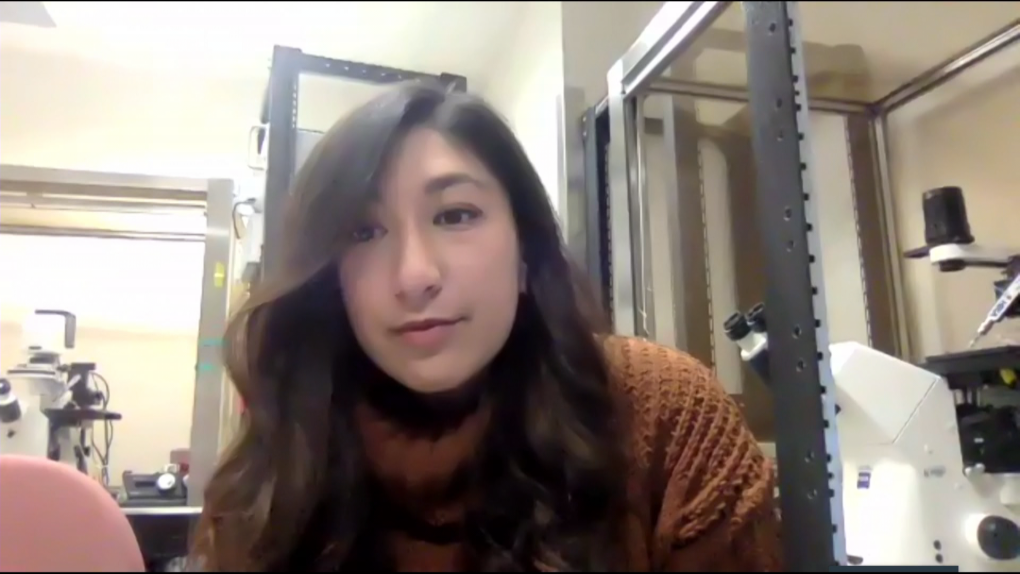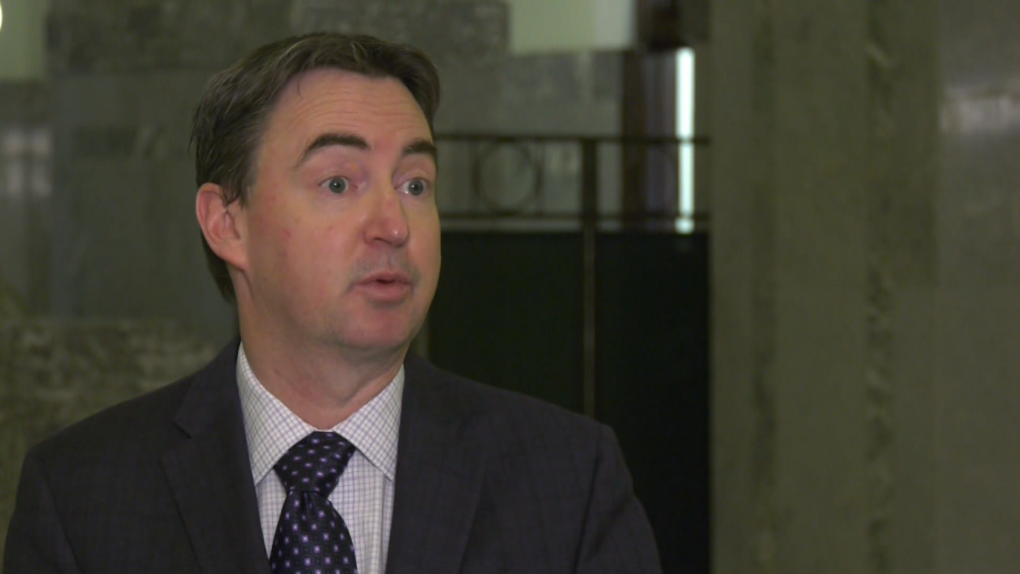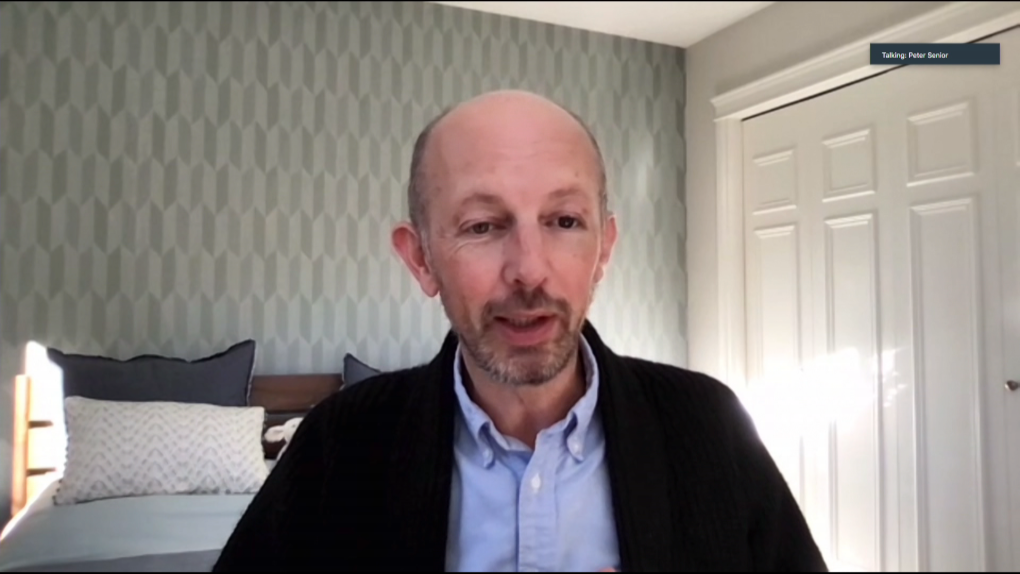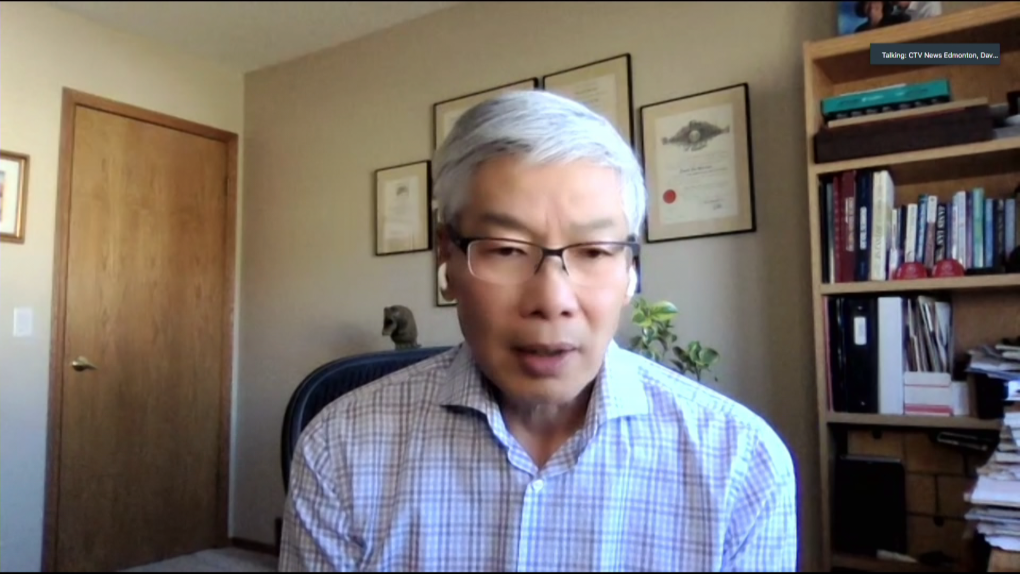'It all boils down to cost': Albertans with diabetes frustrated by changes to insulin drug coverage
Albertans living with diabetes are criticizing the province for forcing them to switch from using biological insulin to biosimilar insulin.
Biologics are complex drugs derived from living cells. Biosimilars mimic the original drugs but are based on expired patents and can be delivered at less cost.
Tyler Shandro, Alberta's health minister in 2019 when the province announced the change for patients of all kinds, said it was expected to save the province $380 million over four years.
Jasmine Maghera has been living with Type 1 diabetes for 13 years. She was diagnosed when she was 11 years old and has been taking Novorapid for almost the entire time she’s lived with the disease.
“It was a little bit concerning because it was kind of out of the blue and they were asking me to change the insulin I’ve been on for my whole life,” Maghera said of the directive that came at the start of the month that she switch medication. “The other insulins didn’t work for me, and now I’m being asked to change and it’s quite concerning because I finally have good control.”
 Jasmine Maghera was diagnosed with Type1 diabetes when she was 11 years old and has been taking Novorapid for almost the entire time she's lived with the disease.
Jasmine Maghera was diagnosed with Type1 diabetes when she was 11 years old and has been taking Novorapid for almost the entire time she's lived with the disease.
Maghera said certain types of insulin would cause welts.
“When you take a pill you take one time a day, if it is a little bit different, it might not make a huge change in your day-to-day life,” said Maghera. “But for a lot of Type 1 diabetics and Type 2 diabetics, they’re being continuously infused with insulin so it will make a big difference.”
'SAME LEVEL OF CARE,' SAVINGS: HEALTH MINISTER
Maghera says since people living with Type 1 diabetes have to calculate how much insulin they need based on their daily activities, their whole routine will need to be recalculated based on how their body interacts with the new biosimilar insulin.
“Making a change like this can be quite debilitating for a lot of people. It’s very frustrating.”
According to a Alberta Blue Cross letter, adult patients taking Novorapid will be required to switch to a biosimilar version by April 1, 2022, to keep coverage through their government sponsored drug plan.
“The purpose really of doing that is to provide the same level of care and actually get savings we can reinvest back into the health-care system,” Alberta's current health minister, Jason Copping, said.
 Jason Copping became Alberta's health minister during a cabinet shuffle on Sept. 21, 2021.
Jason Copping became Alberta's health minister during a cabinet shuffle on Sept. 21, 2021.
According to Copping, more than 20 people have asked to stay on biologic insulin since the changes were announced, and more than 50 have requested to change back to a biologic product after switching to biosimilar. He said all have been approved.
“Biosimilars are effective, they provide the same level of care and do the same thing as a biologic, and enables us to invest back into the healthcare system,” Copping told CTV News Edmonton.
DECISION BY 'PEOPLE WHO NEVER TALK TO PATIENTS': DOC
"It can be managed, it can be handled, but I think the communication has not been great," commented Dr. Peter Senior, the director of the Alberta Diabetes Institute.
"It feels in some ways that this has been a decision that has been made by people who never talk to patients."
- Patient concerned as Alberta considers drug coverage change
- Opposition NDP urges Alberta government not to switch drugs for some patients
He said that he heard about this most recent change through two of his patients who received a letter notifying them of the change. He had not been contacted directly.
 Dr. Peter Senior, director of the Alberta Diabetes Institute, criticized how the Alberta government communicated the decision to transition diabetes patients to biosimilar insulin.
Dr. Peter Senior, director of the Alberta Diabetes Institute, criticized how the Alberta government communicated the decision to transition diabetes patients to biosimilar insulin.
The biggest concern for Senior's patients is the forced switch from a biologic brand to a biosimilar one.
"If you're established on a drug for your disease and it's working for you -- and often biologics are used as a second, third, fourth choice when nothing else is working -- I think you can understand why people get upset about being forced to change brands."
'NOT INFERIOR,' SAYS ANOTHER DOC
However, Dr. David Lau, a professor of medicine at the University of Calgary, says that biosimilar insulin is just as effective as the biologic products.
“A lot of people are concerned about the generic medication, which is not necessarily as effective as the brand name medication. Whereas in the case of biosimilar products, they have to undergo very rigorous clinical trial testing and demonstration that the product is non-inferior so to speak to the original product,“ said Lau.
 Dr. David Lau, a professor of medicine at the University of Calgary, told CTV News Edmonton "by and large" the public could be reassured biosimilar insulin is not inferior to a biologic product.
Dr. David Lau, a professor of medicine at the University of Calgary, told CTV News Edmonton "by and large" the public could be reassured biosimilar insulin is not inferior to a biologic product.
Biosimilars can be upwards of 15 per cent cheaper than current insulin offered, according to Lau -- although the government's estimate is u pto 30 per cent.
“It all boils down to cost. It’s a cost-saving measure,” Lau said.
He says something similar is happening in Europe, causing some biologic brands to lower prices to match biosimilar options in order to compete.
“I think by and large the public should be reassured the biosimilar insulin they’re taking is not inferior to the original product.”
Lau says the process is quite different from generic versus brand name oral medications, and that patients should be reassured that the majority of biosimilar products will be identical to the original product.
With files from CTV News Edmonton’s Touria Izri
CTVNews.ca Top Stories

Canada 'already past due' on NATO defence spending target: U.S. House intelligence committee chair Mike Turner
The chair of the United States House intelligence committee says Canada needs to accelerate its defence spending targets, especially with its military in 'desperate' need of investment.
Scurvy resurgence highlights issues of food insecurity in Canada's rural and remote areas
A disease often thought to only affect 18th century sailors is reemerging in Canada.
Lotto Max jackpot hits $80M for second time ever
The Lotto Max jackpot has climbed to $80 million for just the second time in Canadian lottery history.
Four convicted in Spain over homophobic murder that sparked nationwide protests
Four men were convicted on Sunday in connection with the homophobic murder of a 24-year-old nursing assistant that sparked nationwide protests.
Nova Scotia Tories appear safe with close battle for second between Liberals and NDP
With two days left before Nova Scotians elect their next government, polls suggest Progressive Conservative Leader Tim Houston's decision to call an early vote will pay off and the real battle will be between the Liberals and NDP for second place.
School bullies have moved online. But is banning all under-16s from social media really the answer?
The Australian government introduced what it's called 'world-leading' legislation in parliament this week to wipe social media accounts – including Snapchat, TikTok, Facebook, Instagram, Reddit and X – from the devices of children under 16.
After Trump's Project 2025 denials, he is tapping its authors and influencers for key roles
After being elected the 47th president on Nov. 5, Donald Trump is stocking his second administration with key players in the Project 2025 movement he temporarily shunned.
Police thought this gnome looked out of place. Then they tested it for drugs
During a recent narcotics investigation, Dutch police said they found a garden gnome made of approximately two kilograms of MDMA.
Trudeau calls violence in Montreal 'appalling' as NATO protest continues
Anti-NATO protesters gathered again in Montreal on Saturday to demand Canada withdraw from the alliance, a day after a demonstration organized by different groups resulted in arrests, burned cars and shattered windows.

































